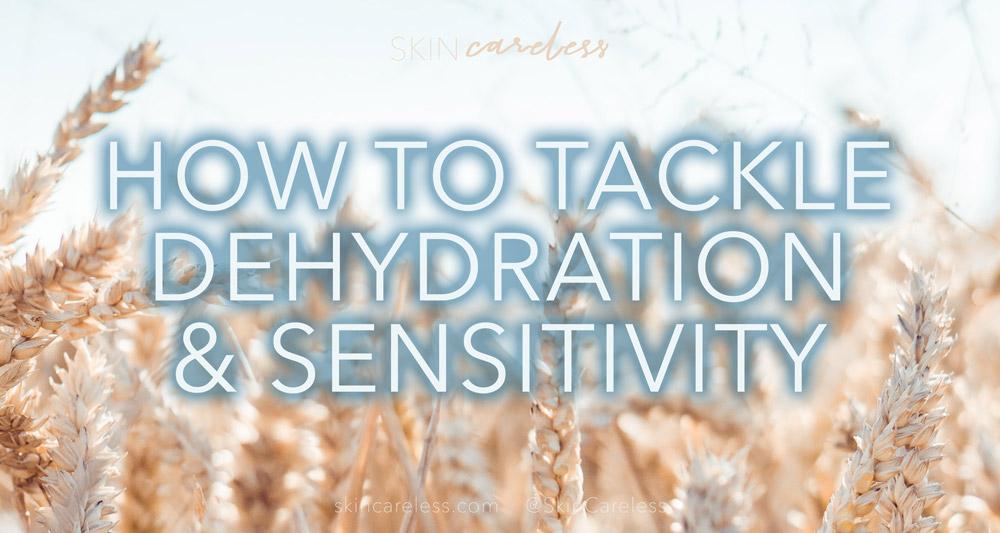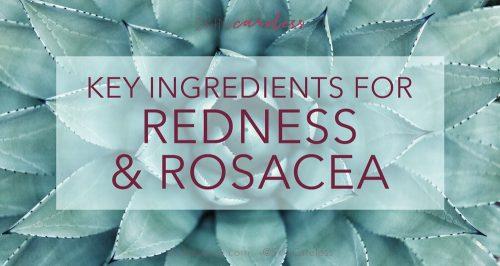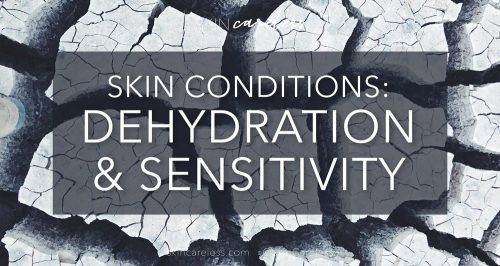When you’re suffering from dehydration and sensitivity, it can really affect your skin in more ways than one. Not only will you be prone to redness and discomfort, you skin may look dull, dry, wrinkled, and taut, and be more susceptible to acne and heal slower.
If you need a reminder on how bad dehydrated skin can end up, check out the worst my skin has ever looked. If you’re not sure whether dehydration and sensitivity are what’s causing your issues, find out here.
To start on the road to healing, it’s imperative to treat the root cause of most cases of dehydration and sensitivity: irritation because of improper skin care. Here are some easy changes that will make the difference:
Start using a more gentle cleanser
The first line of treatment for dehydration and sensitivity is removing the strong foaming cleansers from your routine. They are often overly surfactant (remove too many oils) and too high a pH, which causes irritation and invites infection.
Think about it: if you’re beginning each day riling your skin up, when does it ever get a chance to heal?
To do:
Instead, use a gentle, fragrance free, non-foaming cleanser (I’d recommend something creamy like Neutrogena Ultra Gentle or gentle like Garnier Micellar Water)
Lose the irritating ingredients
Other than highly-foaming cleansers, there’s a ton of other sneaky ingredients that will upset your skin and cause the telltale symptoms of sensitivity.
Plant extracts, essential oils and drying alcohols are a no-go. They offer little to no benefit to the skin, are proven to be irritating, can be dangerous, and further compromise the skin barrier and encourage precious water to evaporate faster.
To do:
Check all your products, especially highly scented serums or moisturisers, for these ingredients and if you find any, toss them.
Switch out your moisturiser
You should be using a moisturiser that contains plenty of water-binding humectant ingredients. Unlike some other types of ingredients, humectants attract water to come from the air and the deeper layers of your skin to the outer skin cells, which is perfect for tackling dehydration.
To do:
Find a better moisturiser by looking at potential purchases ingredient lists. Two popular humectants are hyaluronic acid and glycerin. I personally use Hada Labo Premium Lotion, a watery gel-serum that sinks in fast and makes your skin feel super plump.
Embrace occlusives
Occlusives are another category of moisturiser ingredients, that this time literally form a layer to prevent water from evaporating from the skin. This will prevent trans-epidermal (from-the-skin) water loss ruining all your hard work and drying your skin right back out again.
To do:
Trap in all the good hydration you got from your humectant moisturiser whenever possible with an occlusive layer, like Vaseline. Don’t worry, the fear of mineral oil and petroleum products is a myth.
Have patience
You didn’t irritate your skin in a day, and you won’t heal it in a day either. Treating dehydration and sensitivity is less to do with taking action and more a lot of sitting back and waiting. The more you switch up your approach, the more likely you are the accidentally introduce a new problem. Focus on being consistent with your routine and you’ll see results in the long term.







[…] supple and encourage hydration. Cleanse with a creamy, non-drying cleanser or micellar water to avoid dehydration. Dry skin will also need richer, heavier […]
[…] But if you’re lucky and black soap seems to work great for you, and you don’t want to stop, that’s fine. Skin care, after all, is complicated, individual, and finicky. So, just know that if you can’t live without it, consider dialing back on the frequency to avoid overcleansing and leading to dehydrated skin territory. […]
[…] AHA 8% Peeling Serum seemed like the natural choice after my year long abstinence from actives as I repaired my dehydration. I needed gentle exfoliating and this serum delivers just that, and it’s free from fatty alcohols […]
[…] component of our skin and everything looks better on a hydrated base. Proper hydration will reduce irritation and redness, meaning you can put less makeup on while having a natural in-built glow. When your skin’s […]